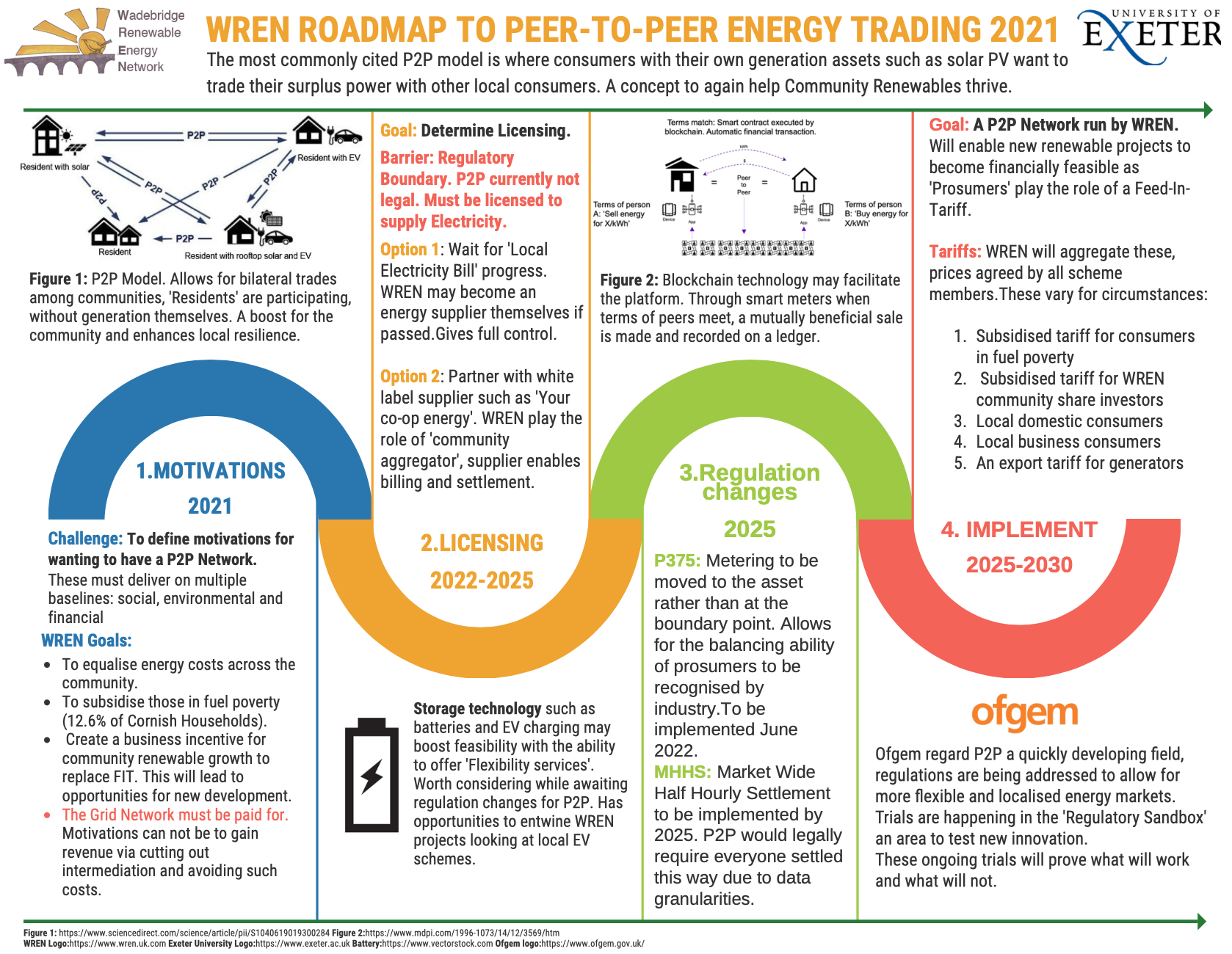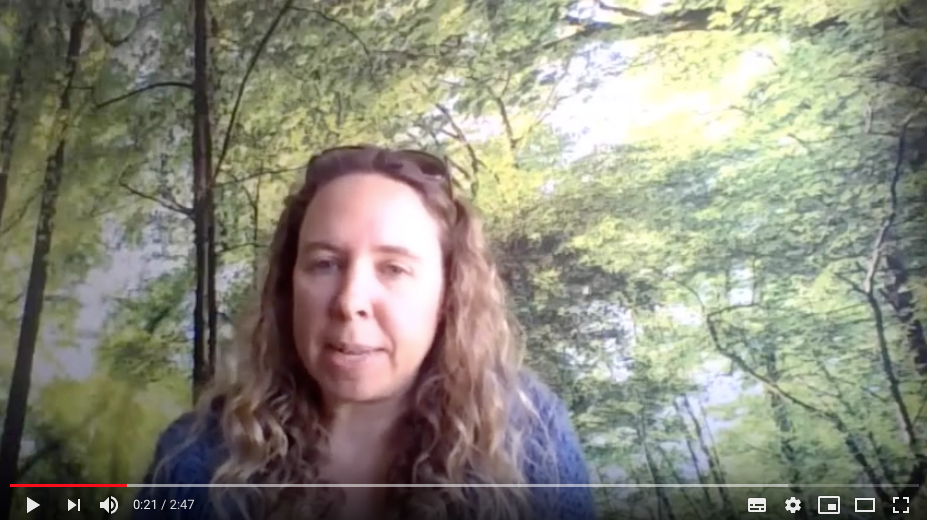‘Energy Equality’, encapsulated in its name, sets out to equalise the benefits of renewable energy across the whole community, so that benefits are not restricted to those who have the right rooftops and can afford to put PV panels on them.
Roadmap to Energy Equality
Matt Adams at the University of Exeter recently completed a report on the challenges facing WREN in trying to develop peer-to-peer trading, summarised in this diagram.

The full report is available by clicking here.
Zoom in on Energy Equality
If local renewable electricity was cheaper than your supplier, would you be interested?
That’s the question that WREN asked at the launch of its Energy Equality project in April 2020. The launch, originally planned for Wadebridge Town Hall, had to be moved on-line due to Covid-19, and attracted nearly 40 participants, including guest speakers from Loughborough University and University College London.
You can view the meeting, including a question and answer session, online at: https://youtu.be/XBPLPChFx1o
The launch event attracted mainly those who already have an interest in renewable energy, which meant that many were already solar PV owners. However, to be successful, a peer-to-peer trading system requires people from the community who don’t have panels and just want to buy cheaper electricity.
We are still very keen to talk to all households who would like to buy locally generated electricity at a lower price than currently on offer from big energy suppliers.
For a fuller report on the Energy Equality launch, click here.
The Energy Equality Project
Peer-to-peer trading is new.
It will enable people in the community who generate electricity, such as from their domestic rooftop solar panels or the new installations mentioned earlier, to trade their surplus generation with others in the community who do not have their own generation. The people selling would be looking to receive a better price than from commercial outlets and the people buying would be looking to pay less than from a conventional supplier. WREN (with partners) would be acting as the enabler for this to happen.
The feasibility study has two parts:
- Develop new solar PV generation installations
- Develop peer-to-peer electricity trading
The first is well established technology – putting solar panels in open space or on rooftops to generate electricity. WREN was awarded funding by RCEF, the Rural Community Energy Fund, to perform a feasibility study in 2020.
The feasibility study assessed the economic and social viability of the concept.
Click here to watch WREN Technical Director Chris Coonick explain:
To keep up to date with Energy Equality, sign up to our newsletter (WREN members who have given us data protection permission already receive this)
or like our Facebook page.
